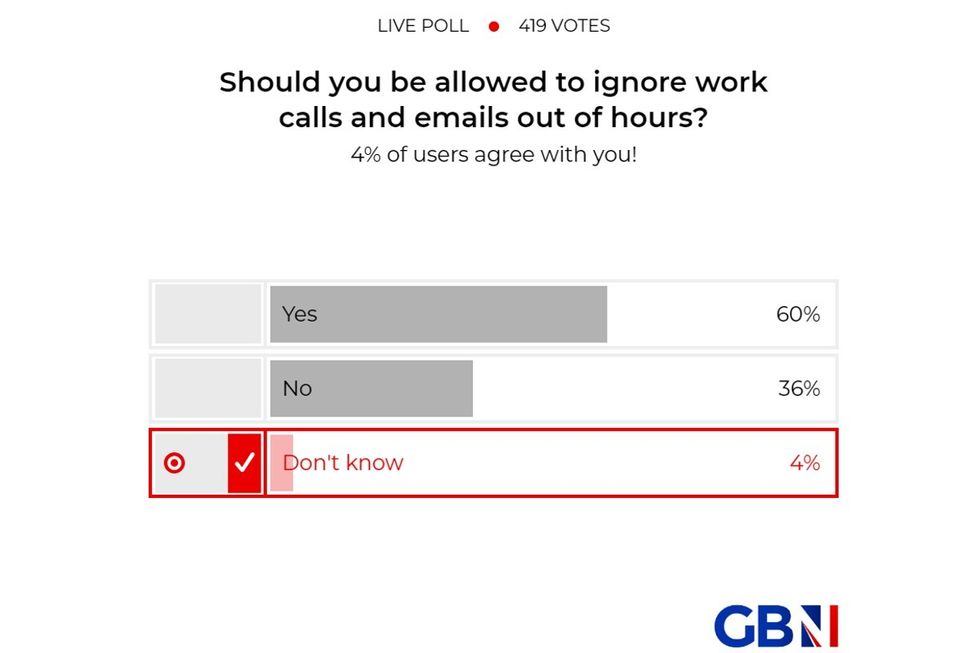POLL OF THE DAY: Should you be allowed to ignore work calls and emails out of hours? YOUR VERDICT

POLL OF THE DAY: Should you be allowed to ignore work calls and emails out of hours? VOTE NOW
Don't Miss
Most Read
Trending on GB News
Workers will soon be able to ignore work calls and emails while outside of office hours, new plans by the Labour Government have suggested.
Keir Starmer’s Party have introduced the ‘right to switch off’ pledge which will allow workers the right to refuse to take on extra work at weekends.
A spokesman for Starmer said the plan was backed by the Prime Minister, saying: “This is about ensuring people have some time to rest.”
“Good employers understand that for workers to stay motivated and productive they do need to be able to switch off, and a culture presenteeism can be damaging to productivity.”

POLL OF THE DAY: Should you be allowed to ignore work calls and emails out of hours? YOUR VERDICT
GB News
Although the pledge will not be enshrined in law, it will likely be recommended in the codes of practice for businesses.
Paul Nowak, General Secretary of The Trades Union Congress said: “No one should be pushed to the brink because of their job.
“Ever-increasing hours, pace and expectations at work are causing problems up and down the country. This is a recipe for burnt-out Britain.
“So we welcome these measures to tackle work intensity. Introducing a right to switch off will let workers properly disconnect outside of working hours.”
In the exclusive poll for GB News membership readers, an overwhelming majority (60 per cent) of the 419 voters thought you should be allowed to ignore work calls and emails out of hours, while just 36 per cent thought you shouldn't. Four per cent said they did not know.







